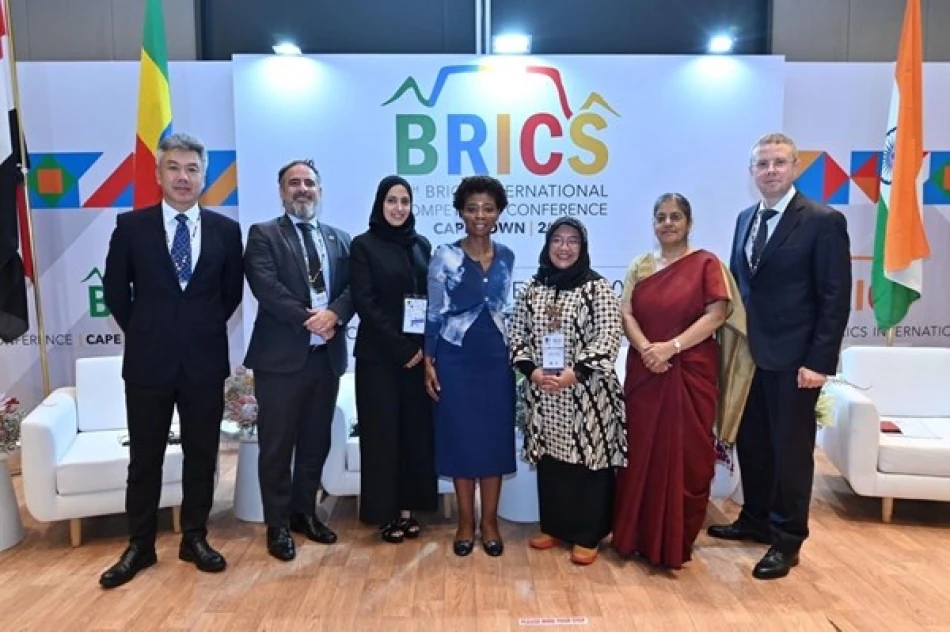
UAE Joins BRICS Cooperation Pact on Competition Matters
UAE Joins BRICS Competition Framework in Strategic Move to Shape Global Economic Policy
The United Arab Emirates has signed onto the BRICS Competition Memorandum of Understanding, marking a significant step in the nation's broader strategy to position itself as a bridge between established Western markets and emerging economies. This move grants the UAE access to competition policy coordination among the world's largest developing economies, potentially reshaping how antitrust enforcement evolves in an increasingly multipolar economic landscape.
Strategic Timing Amid Global Economic Realignment
The UAE's participation in the recent BRICS competition authorities meeting in South Africa comes at a pivotal moment. As global trade patterns shift and digital markets reshape traditional competition dynamics, smaller economies like the UAE are seeking influence in policy-making forums that extend beyond Western-dominated institutions.
This memorandum focuses on combating monopolistic practices, sharing expertise, and developing effective competition policies—areas where the UAE has been building considerable expertise as it diversifies its economy away from oil dependency.
Market Implications for Investors and Businesses
Enhanced Regulatory Coordination
For multinational corporations operating across BRICS markets, the UAE's integration into this framework signals more coordinated antitrust enforcement. Companies may face more standardized approaches to merger reviews and market dominance investigations across these jurisdictions, potentially streamlining compliance but also increasing scrutiny.
Digital Economy Focus
The discussions at the conference highlighted artificial intelligence and digital market transformations—sectors where the UAE has invested heavily. This alignment could give UAE-based tech companies and AI initiatives preferential treatment or clearer regulatory pathways in other BRICS markets, particularly as these economies develop their own digital infrastructure.
Positioning Against Western Alternatives
Unlike competition policy coordination through OECD or bilateral agreements with the US and EU, the BRICS framework offers the UAE an alternative avenue for economic integration. This diversification mirrors the country's broader foreign policy strategy of maintaining relationships across different power blocs while avoiding over-dependence on any single economic partnership.
Safia Al-Safi, Assistant Undersecretary for Commercial Supervision and Governance at the Ministry of Economy and Tourism, emphasized that this step supports building "more transparent and dynamic markets"—language that subtly contrasts with criticism of Western tech monopolies and financial market concentration.
Comparative Regional Strategy
This move distinguishes the UAE from regional competitors like Saudi Arabia, which has focused more heavily on bilateral arrangements with major powers. While Singapore has pursued similar multi-alignment strategies, the UAE's BRICS engagement specifically targets emerging market integration rather than serving as a Western financial hub.
Long-term Economic Implications
The UAE's participation in BRICS competition policy development positions the country to influence how antitrust enforcement evolves in markets representing over 40% of global GDP. As these economies continue growing faster than developed markets, early integration into their regulatory frameworks could provide UAE businesses with significant competitive advantages.
More strategically, this engagement allows the UAE to help shape global economic governance at a time when Western institutions face legitimacy challenges in the developing world. The country's reputation for efficient regulation and business-friendly policies could make it an influential voice in developing competition standards that balance market efficiency with economic sovereignty concerns.
Most Viewed News

 Layla Al Mansoori
Layla Al Mansoori






